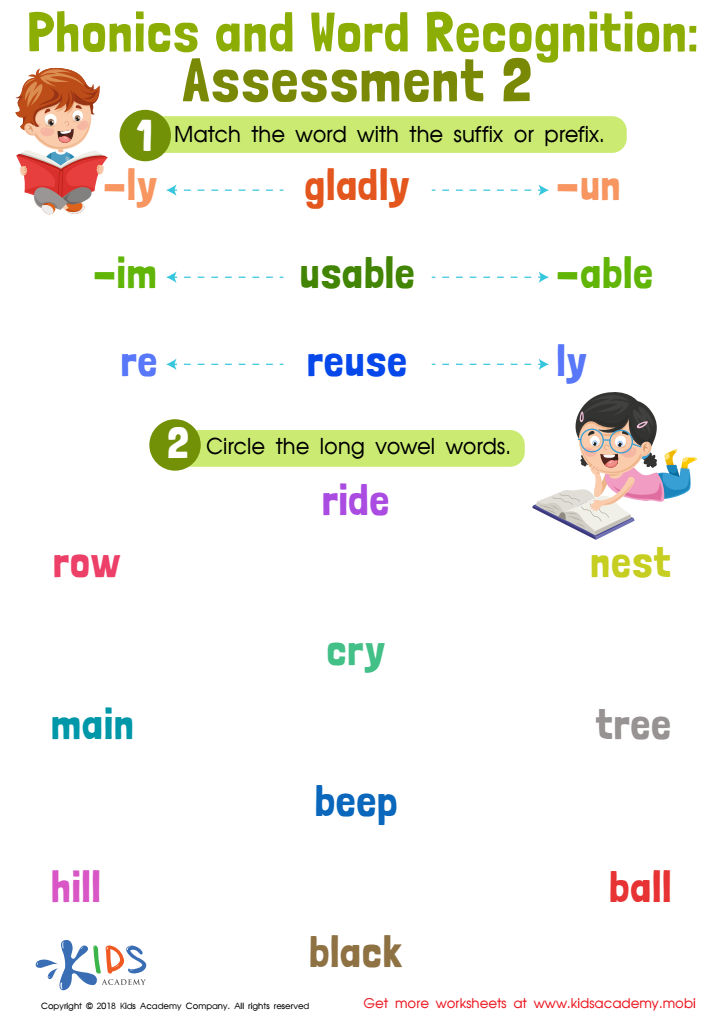Phonics recognition Writing Worksheets for 8-Year-Olds
4 filtered results
-
From - To
Unlock the potential of your 8-year-old with our engaging Phonics Recognition Writing Worksheets. Designed to foster essential literacy skills, these worksheets help young learners recognize, pronounce, and write phonetic sounds effectively. Our curated activities combine fun visuals with interactive exercises, making learning an enjoyable experience. Perfect for both classroom and home use, these worksheets support the development of reading comprehension and writing confidence. Download today from Kids Academy and watch your child excel at phonics, setting a strong foundation for future academic success. Visit our site to explore more enriching resources tailored to your child's learning needs.


Phonics and Word Recognition: Assessment 1 Worksheet


Phonics and Word Recognition: Assessment 1 Worksheet


Phonics and Word Recognition: Assessment 2 Worksheet


Phonics and Word Recognition: Assessment 2
Phonics recognition is crucial for 8-year-olds as it forms the foundation of reading and writing skills, facilitating effective communication. When children grasp phonics, they can decode words, match sounds to letters, and comprehend the structure of the language. This recognition boosts their reading skills, allowing them to read aloud with confidence and understand texts more deeply. Early mastery of phonics can also enhance their vocabulary, as they decipher new words independently.
Teachers and parents should care because difficulties with phonics can lead to broader literacy challenges, affecting academic performance across subjects. Reading struggles can cause frustration, negatively impacting a child’s self-esteem and overall motivation to learn. Phonics teaching provides a systematic approach to literacy, helping children make connections between letters and sounds methodically, leading to better spelling and writing.
Moreover, strong phonics skills contribute to improved listening and oral language abilities, which are essential for social interaction and classroom participation. Involving parents in phonics activities at home augments classroom efforts, creating a supportive learning environment. By focusing on phonics, teachers and parents invest in a child’s educational journey, equipping them with essential tools for lifelong learning and success.
 Assign to My Students
Assign to My Students
















